Yesterday, June 5, marked the first annual
National HIV/AIDS Long-Term Survivors Awareness Day. Those who have lived several decades with HIV have advocated, fought, survived, thrived, faced immeasurable loss. This includes longtime supportive allies, activists, care providers and family members, who are every bit long-term HIV survivors in their own right.
On this herstoric day, we asked PWN-USA members who’ve been living with HIV for more than 20 years to share how they’d want to see this awareness day acknowledged in the U.S.
 Helen Turner Goldenberg, Texas; Diagnosed in 1984
Helen Turner Goldenberg, Texas; Diagnosed in 1984
I was diagnosed on March 13, 1984, with what they called “full-blown AIDS.” I was an assistant vice president at Bank of America in San Francisco. Fast forward through many challenges, through many illnesses, through medications where either you died or you didn’t, to watching my employees as assistant vice president at Bank of America, 11 of them diagnosed, dropping like flies around me — but
I’m still here, in 2014.
It’s a new thing we’re doing. It’s the first year that we’ve had Long-Term Survivor Day. They’re saying
Let’s Kick Ass — because the bottom line is, to me, we should be looking at this day and acknowledging, celebrating, thanking, congratulating, those that are still here doing this work. Because after getting over my big nonconfront, a whole bout with agoraphobia, a whole bunch of stuff, after getting through all of that, I’m still here, and excited to do the work. Because I don’t want anyone to have to go the trail that I had to go through! I have the experience and can help them not to have to do that.
So just acknowledge that day. Acknowledge me, congratulate me: I’m still here, in the fight, and I want
you to do well! I don’t want you to ever have to go through anything that I went through.
 Pat Kelly, South Carolina; Diagnosed in 1985
Pat Kelly, South Carolina; Diagnosed in 1985
I happen to be a long-term survivor — this year is 29 years for me. And I would love to see this day acknowledged by people that have been living a long time with HIV, to be able to tell the message that HIV is no longer a death sentence. I’m here all this time because of great medications, great care and being a great advocate for myself. Being a part of PWN-USA has really helped me to further my education and my knowledge and to know that
I should be honored! All those people living 20-plus years should be honored. Long-term survivors should be very much aware that we make a statement just by living our lives.
 Tammy Kinney, Georgia; Diagnosed in 1987
Tammy Kinney, Georgia; Diagnosed in 1987
I’ve been diagnosed for 28 years. I got diagnosed in October 1987. And I am a long-term survivor.
I want people to understand and get educated that we are living with this virus, that it is not a death sentence. When the virus first came out in the early 1980s, even health care workers were telling people that they were not going to be living past 5-10 years. But I am a testimony, along with other voices out there, that you
can live. This virus is controlled through medication and awareness and education and motivation and empowerment. We
can live with HIV.
 Susan Mull, Pennsylvania; Diagnosed in 1993
Susan Mull, Pennsylvania; Diagnosed in 1993
I am just so delighted that this is the
first fabulous National HIV/AIDS Long-Term Survivors Awareness Day — I was diagnosed in 1993. How amazing is that? I didn’t even think I would live to be a grandmother. That’s amazing!
But for me, personally: I would love to have some kind of really cool thing in every community where there are women living with HIV, to maybe have at a convention center parties and acknowledgements or big banners! Or posters, billboards along highways saying: “We love our mothers, we love our sisters, we love our aunts, we love all the women who have nurtured us, and this is National HIV/AIDS Long-Term Survivors Awareness Day, and we honor them all — we stand on their shoulders!”
I’m a little bit weepy right now because so many of them have died.
And also, this history-geeky part of me would love to acknowledge women who, early on in the movement, as early as 1981 — with the shift in the naming of what people used to call GRID which became named AIDS, and some of the people diagnosed early on that are still living, after 30 years, can you believe that they’re still living — women that did a lot of the research and the academic work to put together a lot of the movement kind of things that happened with ACT UP early on: I would love even
more done to honor those women who poured so, so much of their lives into the movement. It meant everything to the rest of us to have people early on, when everyone was so discriminated against — this whole movement was just not a beloved movement around the world, and there weren’t so many of us together, PWN-USA didn’t exist, a lot of us were not diagnosed or not as savvy or not as aware then.
Those early women, those early historians, those early activists, let’s put them on a United States postage stamp. Amen!
 Linda Scruggs, Maryland; Diagnosed in 1990
Linda Scruggs, Maryland; Diagnosed in 1990
I think that if I look at how do we celebrate or acknowledge or bring awareness to long-term survivors of HIV, it’s really to remind the world, the country, that not only are people living longer with HIV, we’re surviving and we’re thriving. I think that folks 20, 30, 33 years into this: I would like to see who they are! I would love for the U.S. and the world to be able to see that we’re not just the images that the media is used to showing of who we are. So I would love to see a campaign of just the faces of long-term HIV survivors.
 Helen Turner Goldenberg, Texas; Diagnosed in 1984
I was diagnosed on March 13, 1984, with what they called “full-blown AIDS.” I was an assistant vice president at Bank of America in San Francisco. Fast forward through many challenges, through many illnesses, through medications where either you died or you didn’t, to watching my employees as assistant vice president at Bank of America, 11 of them diagnosed, dropping like flies around me — but I’m still here, in 2014.
It’s a new thing we’re doing. It’s the first year that we’ve had Long-Term Survivor Day. They’re saying Let’s Kick Ass — because the bottom line is, to me, we should be looking at this day and acknowledging, celebrating, thanking, congratulating, those that are still here doing this work. Because after getting over my big nonconfront, a whole bout with agoraphobia, a whole bunch of stuff, after getting through all of that, I’m still here, and excited to do the work. Because I don’t want anyone to have to go the trail that I had to go through! I have the experience and can help them not to have to do that.
So just acknowledge that day. Acknowledge me, congratulate me: I’m still here, in the fight, and I want you to do well! I don’t want you to ever have to go through anything that I went through.
Helen Turner Goldenberg, Texas; Diagnosed in 1984
I was diagnosed on March 13, 1984, with what they called “full-blown AIDS.” I was an assistant vice president at Bank of America in San Francisco. Fast forward through many challenges, through many illnesses, through medications where either you died or you didn’t, to watching my employees as assistant vice president at Bank of America, 11 of them diagnosed, dropping like flies around me — but I’m still here, in 2014.
It’s a new thing we’re doing. It’s the first year that we’ve had Long-Term Survivor Day. They’re saying Let’s Kick Ass — because the bottom line is, to me, we should be looking at this day and acknowledging, celebrating, thanking, congratulating, those that are still here doing this work. Because after getting over my big nonconfront, a whole bout with agoraphobia, a whole bunch of stuff, after getting through all of that, I’m still here, and excited to do the work. Because I don’t want anyone to have to go the trail that I had to go through! I have the experience and can help them not to have to do that.
So just acknowledge that day. Acknowledge me, congratulate me: I’m still here, in the fight, and I want you to do well! I don’t want you to ever have to go through anything that I went through.
 Pat Kelly, South Carolina; Diagnosed in 1985
I happen to be a long-term survivor — this year is 29 years for me. And I would love to see this day acknowledged by people that have been living a long time with HIV, to be able to tell the message that HIV is no longer a death sentence. I’m here all this time because of great medications, great care and being a great advocate for myself. Being a part of PWN-USA has really helped me to further my education and my knowledge and to know that I should be honored! All those people living 20-plus years should be honored. Long-term survivors should be very much aware that we make a statement just by living our lives.
Pat Kelly, South Carolina; Diagnosed in 1985
I happen to be a long-term survivor — this year is 29 years for me. And I would love to see this day acknowledged by people that have been living a long time with HIV, to be able to tell the message that HIV is no longer a death sentence. I’m here all this time because of great medications, great care and being a great advocate for myself. Being a part of PWN-USA has really helped me to further my education and my knowledge and to know that I should be honored! All those people living 20-plus years should be honored. Long-term survivors should be very much aware that we make a statement just by living our lives.
 Tammy Kinney, Georgia; Diagnosed in 1987
I’ve been diagnosed for 28 years. I got diagnosed in October 1987. And I am a long-term survivor.
I want people to understand and get educated that we are living with this virus, that it is not a death sentence. When the virus first came out in the early 1980s, even health care workers were telling people that they were not going to be living past 5-10 years. But I am a testimony, along with other voices out there, that you can live. This virus is controlled through medication and awareness and education and motivation and empowerment. We can live with HIV.
Tammy Kinney, Georgia; Diagnosed in 1987
I’ve been diagnosed for 28 years. I got diagnosed in October 1987. And I am a long-term survivor.
I want people to understand and get educated that we are living with this virus, that it is not a death sentence. When the virus first came out in the early 1980s, even health care workers were telling people that they were not going to be living past 5-10 years. But I am a testimony, along with other voices out there, that you can live. This virus is controlled through medication and awareness and education and motivation and empowerment. We can live with HIV.
 Susan Mull, Pennsylvania; Diagnosed in 1993
I am just so delighted that this is the first fabulous National HIV/AIDS Long-Term Survivors Awareness Day — I was diagnosed in 1993. How amazing is that? I didn’t even think I would live to be a grandmother. That’s amazing!
But for me, personally: I would love to have some kind of really cool thing in every community where there are women living with HIV, to maybe have at a convention center parties and acknowledgements or big banners! Or posters, billboards along highways saying: “We love our mothers, we love our sisters, we love our aunts, we love all the women who have nurtured us, and this is National HIV/AIDS Long-Term Survivors Awareness Day, and we honor them all — we stand on their shoulders!”
I’m a little bit weepy right now because so many of them have died.
And also, this history-geeky part of me would love to acknowledge women who, early on in the movement, as early as 1981 — with the shift in the naming of what people used to call GRID which became named AIDS, and some of the people diagnosed early on that are still living, after 30 years, can you believe that they’re still living — women that did a lot of the research and the academic work to put together a lot of the movement kind of things that happened with ACT UP early on: I would love even more done to honor those women who poured so, so much of their lives into the movement. It meant everything to the rest of us to have people early on, when everyone was so discriminated against — this whole movement was just not a beloved movement around the world, and there weren’t so many of us together, PWN-USA didn’t exist, a lot of us were not diagnosed or not as savvy or not as aware then.
Those early women, those early historians, those early activists, let’s put them on a United States postage stamp. Amen!
Susan Mull, Pennsylvania; Diagnosed in 1993
I am just so delighted that this is the first fabulous National HIV/AIDS Long-Term Survivors Awareness Day — I was diagnosed in 1993. How amazing is that? I didn’t even think I would live to be a grandmother. That’s amazing!
But for me, personally: I would love to have some kind of really cool thing in every community where there are women living with HIV, to maybe have at a convention center parties and acknowledgements or big banners! Or posters, billboards along highways saying: “We love our mothers, we love our sisters, we love our aunts, we love all the women who have nurtured us, and this is National HIV/AIDS Long-Term Survivors Awareness Day, and we honor them all — we stand on their shoulders!”
I’m a little bit weepy right now because so many of them have died.
And also, this history-geeky part of me would love to acknowledge women who, early on in the movement, as early as 1981 — with the shift in the naming of what people used to call GRID which became named AIDS, and some of the people diagnosed early on that are still living, after 30 years, can you believe that they’re still living — women that did a lot of the research and the academic work to put together a lot of the movement kind of things that happened with ACT UP early on: I would love even more done to honor those women who poured so, so much of their lives into the movement. It meant everything to the rest of us to have people early on, when everyone was so discriminated against — this whole movement was just not a beloved movement around the world, and there weren’t so many of us together, PWN-USA didn’t exist, a lot of us were not diagnosed or not as savvy or not as aware then.
Those early women, those early historians, those early activists, let’s put them on a United States postage stamp. Amen!
 Linda Scruggs, Maryland; Diagnosed in 1990
I think that if I look at how do we celebrate or acknowledge or bring awareness to long-term survivors of HIV, it’s really to remind the world, the country, that not only are people living longer with HIV, we’re surviving and we’re thriving. I think that folks 20, 30, 33 years into this: I would like to see who they are! I would love for the U.S. and the world to be able to see that we’re not just the images that the media is used to showing of who we are. So I would love to see a campaign of just the faces of long-term HIV survivors.
Linda Scruggs, Maryland; Diagnosed in 1990
I think that if I look at how do we celebrate or acknowledge or bring awareness to long-term survivors of HIV, it’s really to remind the world, the country, that not only are people living longer with HIV, we’re surviving and we’re thriving. I think that folks 20, 30, 33 years into this: I would like to see who they are! I would love for the U.S. and the world to be able to see that we’re not just the images that the media is used to showing of who we are. So I would love to see a campaign of just the faces of long-term HIV survivors. 


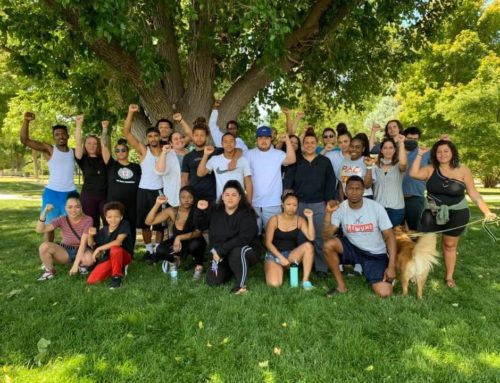
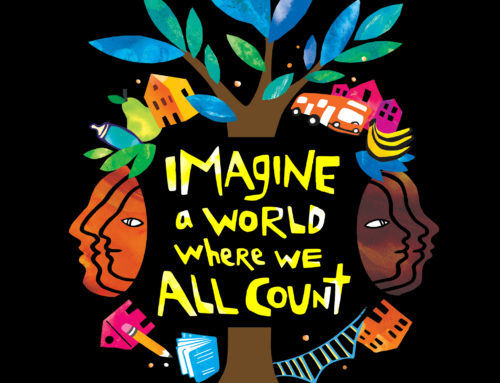
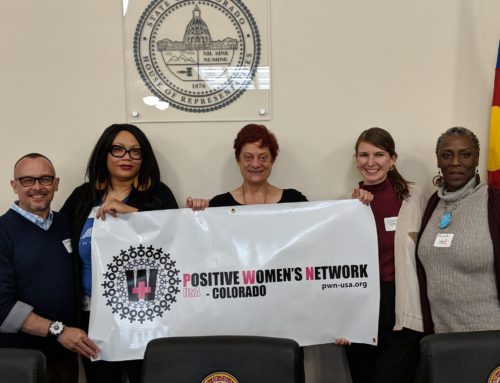
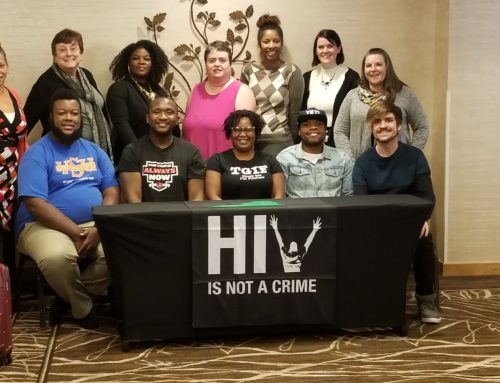
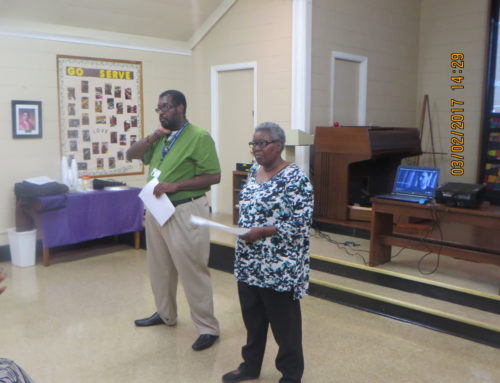
Amazing women. I am also celebrating 29 years and am grateful to be able to continue to pursue my hopes and dreams. Lovinglife everyday!
Vickie, you are a-MAAA-zing! Thank you so much for your beautiful comment, and blessings for your beautiful, long life! 😀
wow this is really amazing… our lives are in the hands of the lord.. keep on growing strong women… lot of love